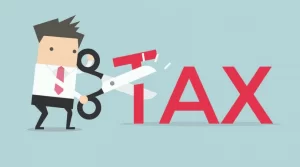It’s important to know whether you are employee or Independent Contractor in the eyes of the government.
CRA offers a guide: Employee or Independent Contractor
Canadian Revenue Agency’s (CRA) online guide RC4110, Employee or Self-Employed?
According to CRA, the intent you had going into your relationship and the degree of control you have over the person are important factors in determining whether you have an employer-employee or a business relationship. Factors differ if the work relationship is in Quebec.
Differences between employee and independent contractors
| Employees | Independent contractors (self-employed worker or freelancer) | |
| Employment status | Works for one client or company. | Independent contractors can work for many clients or companies. |
| Control | The payer has direct and effective control of how and when the work is carried out. | Client has no or only limited control over how and when the work is done. |
| Tools and equipment | Tools and equipment are usually provided by the payer, who is also responsible for repair, maintenance and insurance costs. The payer will also retain the right to use the tools and equipment provided to the employee.Employees sometimes have to provide their own tools. Providing your own tools does not automatically make you an independent contractor. | Independent contractors usually own the tools and equipment necessary to accomplish the work. They are also responsible for costs of repairs, maintenance and insurance. Contractual control of, and responsibility for, an asset in a rental or lease situation is also usual for independent contractors. |
| Subcontractors and assistants | Employees have to personally do the work they have been assigned and cannot decide to hire helpers or assistants without the express consent of the payer. | Independent contractors and freelancers do not personally have to carry out the work for which they have been hired. They can hire another party to complete all or part of the work required. The payer has no say into whom the independent contractor hires. |
| Financial risk | Employees will generally be reimbursed for any expense incurred in completing their work. They are not usually responsible for any operating expenses and are not financially liable if they do not fulfil the obligations of their contract. The relationship between a worker and an employer is usually continuous; it is not limited to a specific task. | Independent contractors generally take on a measure of financial risk and can incur losses. They often have fixed operating costs relating to operating a workspace or hiring helpers or assistants. The relationship between an independent contractor and a payer is often limited to a specific job rather than an ongoing relationship. |
| Responsibility for investment and management | An employee usually does not need to make any investment in order to provide the service required by the payer. | Independent contractors may be required to make significant investments to provide the service required. |
| Opportunity for profit | Even though their pay can vary depending on the terms of their contracts, employees normally do not have the chance to profit from their work. | Independent contactors may have the chance to profit or incur losses from their work. They can set their own prices and normally incur expenses to complete the work. |
| Benefits | Employees are entitled to benefit plans such as registered pension plans, group accident, health and dental insurance plan. | Independent contractors are not entitled to benefit plans. |
Questions to ask to determine a person’s employment status
Here are questions you can ask to help you determine whether someone is an employee or an independent contractor.
- What was the parties’ intention? Did they intend to establish an employer-employee relationship or a business relationship for services?
- Is the individual given instructions, supervision, control, or subject to discipline?
- Is the person provided with specific directions on what to do, how to do it, and when to do it?
- Is the individual required to personally perform the work, or could they delegate it to someone else?
- Does the individual perform tasks that were traditionally done by an employee?
- Does the person utilize tools, space, supplies, and equipment owned by you?
- Is the worker’s income solely based on the difference between the service’s cost and the charged price? If so, this may indicate a non-employment arrangement.
- Does the person face financial risks if the job’s cost exceeds the price charged? If not, it might indicate an employer-employee relationship.
- Does the person receive regular payments of fixed amounts, regardless of customer satisfaction or payment? This would suggest an employment relationship.
Consult Abdullah CPA for specific questions.






